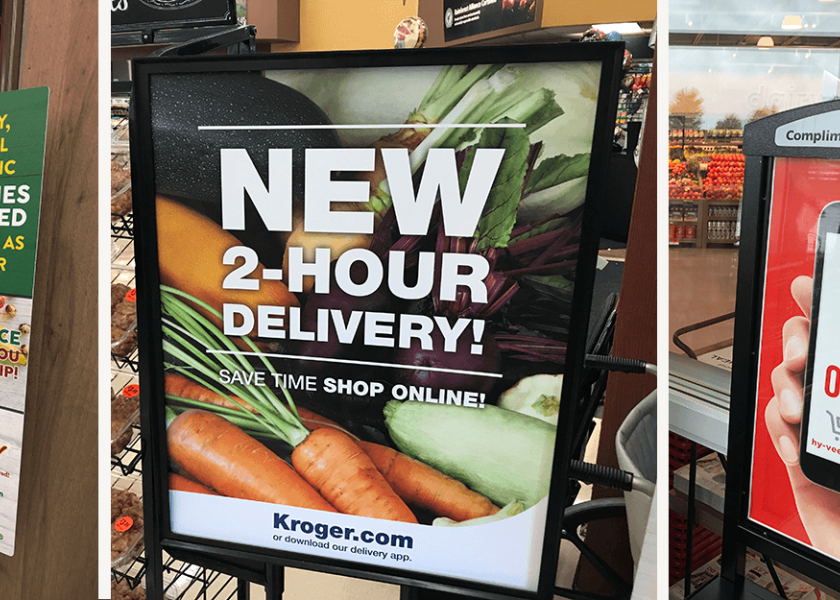Total U.S. online grocery sales for March 2021 Up 43% versus year ago

The U.S. online grocery market finished March with $9.3 billion in sales, a return to January’s record spending levels, as over 69 million households placed an average of 2.8 online orders during the month, according to Brick Meets Click/Mercatus Grocery Shopping Survey fielded March 26-28, 2021.
The 43% jump in sales, versus a year ago when sales were $6.5 billion, quantifies the disruptive impact of a pandemic that continues to alter the way people get their groceries.
“A year since COVID-19 changed how we live, work and shop, online grocery demonstrates continued strength and impressive staying power,” said David Bishop, partner, Brick Meets Click. “The monthly active user base remains robust, average order values are at similarly elevated levels and order frequency has gone up.”
The ongoing independent research initiative created and conducted by Brick Meets Click and sponsored by Mercatus found that 69.3 million households placed one or more online orders during March 2021, compared to 74.5 million during the same period a year ago when stay-at-home orders and retail restrictions first went into effect.
While this represents a 7% decline in the monthly active user base, the decrease was entirely driven by fewer households making online grocery purchases that are shipped to the home via common or contract carriers. In fact, the ship-to-home segment of the online grocery market lost 27% of its monthly users on a year-over-year basis, while the pickup segment gained 12% and delivery gained 23%, illustrating one way the pandemic has changed the way people engage in online grocery shopping.
Regarding order share, the ship-to-home segment captured the largest share of orders before the pandemic and even during March 2020.
However, over the past year it has ceded nearly 19 percentage points of order share to the delivery and pickup segments. Today pickup is the dominant way online orders are received in the U.S.
Monthly active users placed an average of 2.8 online orders during March of this year compared to 2.5 orders a year ago. The 12% gain in order frequency is mainly attributed to the fact that households were still largely shopping in physical stores until states announced stay-at-home orders, with California being the first to do so on March 19, 2020.
At $84, the average value for delivery and pickup orders remained essentially unchanged compared to a year ago, while ship-to-home declined 6% to $49 during the same period. Of note, average order values across all the segments had already risen by 16% to 18% in March 2020 versus pre-COVID levels as households began buying more groceries online.
A year ago, online grocery shoppers faced a range of challenges, including out-of-stocks and insufficient order slot capacity, which degraded the overall experience and led to repeat intent rates plummeting to under 43%. Today, retailers have largely addressed these issues and the effect is evident. For March 2021, the leading satisfaction indicator, “likelihood to use a specific service again,” came in at 62%.
“Over the last 12 months, consumers’ dramatic shift to online grocery shopping has solidified, with curbside pickup attracting the largest share of monthly shoppers at 53% compared to ship-to-home and delivery,” said Sylvain Perrier, president and CEO, Mercatus. “In fact, pickup continues to have stronger consumer demand across all market types compared to delivery. Those brick-and-mortar chains that have invested in optimizing pickup services likely will continue to benefit from the high repeat intent rate as indicated in the data.”







